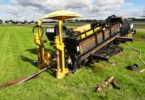Considering the cultural connections to the land, the prosperity of the farming and agriculture sector is a huge issue for many Australians. One of the biggest employers in rural and regional Australia, agricultural production is currently worth around $60 billion a year, with $45 billion worth of export revenue.
Today, the challenges and opportunities in farming across Australia are as diverse as the land that is farmed. Here’s a brief outlook of some of the most intriguing opportunities and urgent challenges.
Land sharing for profits
According to Duncan Ashby, a senior consultant at ProAdvice, the prospect of share farming is a win-win scenario that many small farmers should take advantage of. In contract share farming, the bigger entity, also known as the leasee and the smaller farmer, the lessor, farm the land together through a lease arrangement, incentivising and sharing the profit. This way, both parties see what’s happening behind the numbers in a shared enterprise. However, this approach is still disregarded in farming circles, where larger, corporate and international entities are still seen as a threat instead of an opportunity.
Independent profitability
Whenever there is talk about government incentives to agriculture, we commonly draw on the example of the US. However, although many farms over there are subsidised, they don’t make a profit. In fact, they often make a loss, even the best of farmers, which sounds unbelievable, given the dimension of the US government programmes.
On the other hand, many Australian farms are independently profitable, with lean operations turning a profit year after year. Their example is clear evidence of the favourable climate, pardon the pun, for farming in Australia, despite unpredictable weather and somewhat unfavourable soil.
Prosperous niche ventures
Ashby notes that in farming the most prosperous entities are established farmers and specialised niche growers. If you’re a small farmer, your best chances are to establish a bespoke niche brand that secures a high margin. Specialising within a niche also simplifies the way you run your farm, including the choice of needed farm supplies you use on a regular basis. Going bespoke is a potentially very lucrative approach, however, such a “direct to market” strategy has its risks. In many cases, the way you brand and market your produce requires a different skill set than growing it.
Insufficient forecasting
The weather is a big challenge for farming in any region, and in Australia, farmers need more input in the way weather is predicted. When comparing it to the US forecasting system, the one in Australia is lagging critically, as if the Australian government is failing to see the benefits of long term forecasting. And since farmers aren’t subsidised, like in the US, when they lose money, the government has nothing to do with it. Millions that are lost every year in planting crops that never grow could be avoided with better forecasting.
Big business affecting the bottom line
Having to accept prices on offer in the market, farmers sometimes see themselves as mere ‘price takers’. If you’re a small producer who grows for large businesses, you automatically lack market power. In return, big supermarket chains are misusing their power by commanding lower prices. Supermarkets like Aldi, on the other hand, are known for building long relationships with farmers and delivering a fair price for their produce.
Lack of connectivity
Since an increasing number of markers are using technology plug-ins, a wireless component to the national Broadband Network (NBN) would be most welcome. In order for farmers to be using cloud-based management programs, they need network coverage to upload their data wherever they are. Beyond connectivity challenges, farming-specific technology platforms could be more streamlined. A project that would involve IT experts who could simplify farming management programs would include even more farmers into using integrated software solutions.
While big business in the farming chain often command unfavourable prices, the corporate sector isn’t to be demonised completely, as many small farmers can now make a profit by working the land in a shared contract venture. Despite the lagging weather forecasting, Australian farmers are still capable of making profit, even without government subsidies, proving that where there are challenges there are opportunities.
“The opinions expressed by BizWitty Contributors are their own, not those of BizCover and should not be relied upon in place of appropriate professional advice. Please read our full disclaimer."







